Tuesday Feb 24, 2026
Tuesday Feb 24, 2026
Friday, 9 April 2021 00:00 - - {{hitsCtrl.values.hits}}
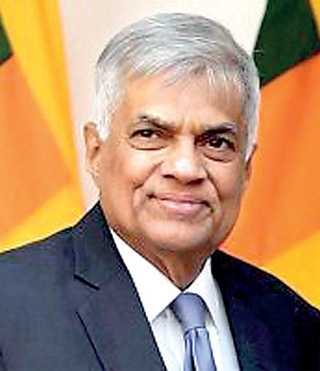
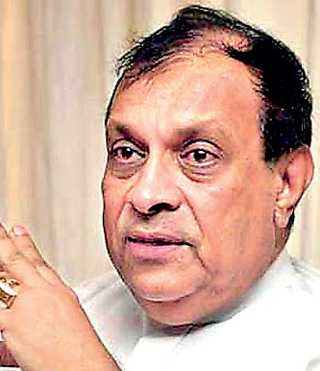
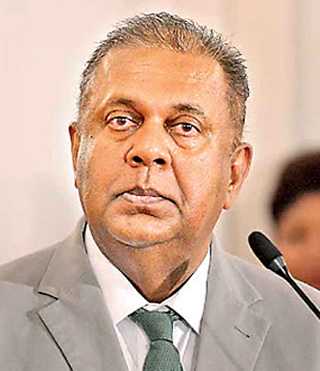
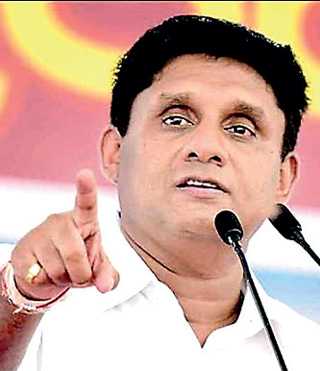
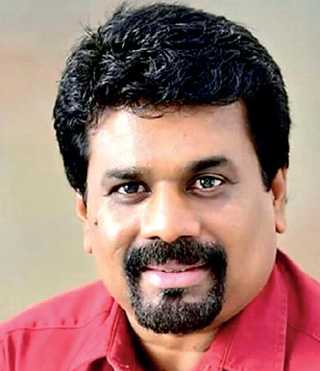
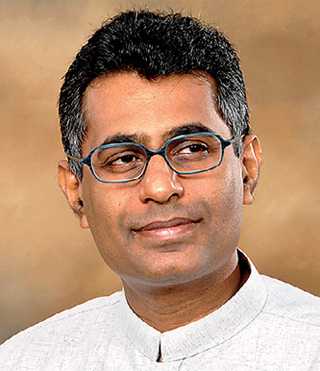
These are the traditional leaders currently representing the Opposition. These six leaders can be described as representing the old order of politics, and have contributed in one way or another to maintain the old system. If they still continue to think the old way, there is hardly anything they could do to save Sri Lanka
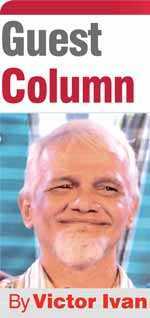 Not having mature leaders or failure to produce such leaders during the post independent period, who possessed the right ability and good judgment to carry forward uninterruptedly the success of the pre-independence era, can be considered as a crucial factor influencing the failure of Sri Lanka.
Not having mature leaders or failure to produce such leaders during the post independent period, who possessed the right ability and good judgment to carry forward uninterruptedly the success of the pre-independence era, can be considered as a crucial factor influencing the failure of Sri Lanka.
Also, not having such leaders with a strong vision, even now when Sri Lanka has become a failed and bankrupt State, capable of rescuing the country from its present unfortunate plight can be described as the biggest challenge the country is facing.
Petty mindedness of leaders
All Heads of State from Prime Minister D.S. Senanayake down to President Gotabaya Rajapaksa that Sri Lanka has produced so far can be considered as petty leaders who lacked a broader vision.
However, it must be stated that the leaders who came to power from time to time until 1977 did not misuse their power to amass wealth for themselves in dishonest and unlawful manner except that on rare occasions they had patronised a limited clique of their supporters who had helped them financially in election campaigns.
But they lacked a clear vision required for building the nation and as such their approach to ethnic, caste and religious issues can be said to have compounded the issues further, plunging the country into incessant bloodshed in the future.
It was only after the establishment of the presidential system of governance in 1977 that the Sri Lankan Heads of State began to abuse their power to amass wealth on a large scale. It was President Jayewardene who introduced a system of large-scale plunder of public property in Sri Lanka. All other presidents who succeeded President Jayewardene continued the system introduced by him, adding new features to it.
Predatory nature
The predatory system that President Jayewardene introduced to Sri Lankan politics can be considered as an art that he had learned from Napoleon. Napoleon was the hero of President Jayewardene.
When invading countries Napoleon employed mercenary armies who were ready to serve anywhere, if they were allowed the right to plunder. When the cities were conquered, Napoleon let his mercenary armies to plunder the cities they captured. The system used by Napoleon for war of aggression, President Jayewardene used for statecraft.
The inherent and conspicuous features of this ugly and corrupt system introduced by President Jayewardene and continued by all his successors by adding more and more new elements to it are as follows.
(a) The President and his Parliamentary Government elected by public vote enjoy the right to amass wealth by undue means in addition to ruling the country. The amassing of wealth takes place in the form of plundering public property.
(b) President, the Head of State who is vested with absolute power of the State, acts as the head of this process.
(c) The Ministers and Members of Parliament belonging to the ruling party extend their support to this exercise carried out by the President. This they do in their capacity as the Members of the Cabinet and Parliamentarians of the ruling party. In return, the President with his immunity provides necessary protection to Ministers and MPs who are involved in the plunder of public property.
(d) This system can be considered as a practice maintained with good understanding between the ruling party and the opposition parties. The Opposition may talk about the thefts and malpractices of the ruling party. But it is only a nominal objection. In the end, both parties acknowledge that the right to plunder public property is a matter of opportunity and time which might be reversed when the power to rule is changed.
 The two main factors of failure
The two main factors of failure
In the absence of a firm and clear policy on nation building, ethnic and religious divisions in society have been exacerbated since independence, pushing the country gradually towards violence. The resulting violent conflicts distorted the life of the people and the social system and weakened the State, eventually pushing it into a state of degeneration.
The “plunder factor” added to the State administration in 1977 led to a systematic corruption of the State and its institutional system while at the same time drastically diminishing the revenue due to the State and plunging the country to the brinks of bankruptcy. Now Sri Lanka has reached the peak of its failure.
It is not correct to think that the current failed situation in Sri Lanka is due to the faults of President Gotabaya and his Government only. There is no denial that the failure of the President and the present Government is unparalleled. But the failure of the country as a whole should be perceived as an outcome of a unique and gradual historical process for which all those who ruled the country should be blamed.
The need for a new approach
The present situation can no longer be overcome by the old system. It needs a new approach. But all Opposition political leaders still seem to be thinking in the old way. Apparently, they are of the view that the failure and bankruptcy facing the country is a unique situation caused by the failure of the incumbent President and the present Government. They seem to believe that it is a problem which could be solved by them after gaining the ruling power into their hands.
But the failure of the State and bankruptcy of the economy are not simple problems that can be solved by the way they think. It is a complex crisis that must be addressed by a national-level structural reform program that focuses on recreating the socio-political system and the State.
The best example of this is the Judiciary. The change of government does not change the decay that has taken place in the Judiciary. This applies equally to the other institutions in the state sector as well. If the main sources of State revenue are held by politicians and their cronies, that situation must be reversed through structural reforms. They do not change automatically merely because the government is changed.
In order to make a real difference in the current miserable situation of the country, it is essential that we identify a mature leader with the right traits of leadership who would stand for a positive change. However, regrettably there is not even a shadow of prospective emergence of such leadership in the near future.
It is therefore, important to consider the possibility of identifying a suitable person/s from among the conventional leaders in the Opposition, and use them to fill the leadership vacuum in the current political scenario, at least after having them being subjected to a rigorous process of tinkering or rather persuading them to readjust their perspectives, policies and approaches.
At this juncture, the country needs a strong leader who would firmly appear for nation-building and stand against the plunder of public property which has become a hallmark of State administration and ready to orientate the country for a structural reform program without waiting for the next Presidential Election.
The names of the traditional leaders currently representing the Opposition are produced below in the order of the English alphabet: they are Anura Kumara Dissanayake, Karu Jayasuriya, Mangala Samaraweera, Sajith Premadasa, Champika Ranawaka and Ranil Wickremesinghe. These six leaders can be described as representing the old order of politics, and have contributed in one way or another to maintain the old system. If they still continue to think the old way, there is hardly anything they could do to save Sri Lanka.
But there may be some among them who understand the bitter reality and would like to change themselves and also possess the determination to do so. What they need is an honest self-criticism of themselves and willingness to change the path they had followed so far. Who are the leaders of the Opposition ready to take on this challenge and prepared to change? It is left to them to confess and make it public. Only then will there be a public debate on it.